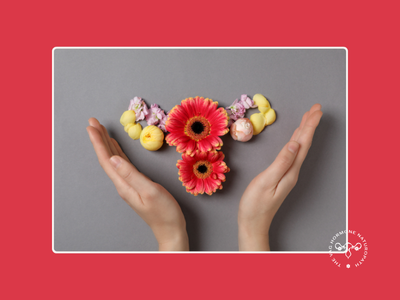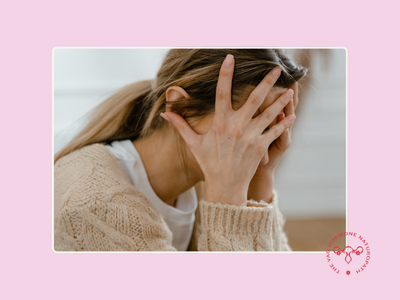· Thrush · 2 min read
Why vaginal iching isn't a hygiene issue: the hidden hormonal causes
Vaginal itching in perimenopause isn’t just about hygiene. Learn what your hormones have to do with it—and why over-the-counter creams often miss the real cause.

You’re doing everything “right” — but the itching keeps coming back You’ve tried the creams. You’ve changed your soap. You’ve Googled “best underwear for thrush” at 2am. Still, the itching, dryness, or discomfort lingers.
Here’s what most women don’t hear from their GP or pharmacist: vaginal itching in perimenopause is often not just about hygiene or infection — it’s about hormones.
Let’s talk about what’s really going on As women move through their 40s, shifting hormone levels — particularly oestrogen — can directly affect the vaginal environment. This hormonal drop alters:
- Vaginal pH
- The protective mucosal lining
- The balance of healthy flora (especially Lactobacillus species)
All of which can lead to symptoms like:
- Itching or burning
- Unusual discharge
- Recurring bouts of thrush-like irritation
- Dryness or discomfort during intimacy
The problem? Most treatments only look at the surface-level symptoms, not the internal changes driving them.
Why the usual creams often don’t work Over-the-counter thrush treatments target specific yeast (generally candida albicans), not the underlying ecosystem of the vaginal microbiome — or the hormonal changes throwing it off balance.
If your symptoms are recurring, incomplete, or only mildly relieved by creams, it’s a sign your body is calling for deeper support — not just symptom management.
And that’s where functional, root-cause care makes all the difference.
What’s actually needed: a personalised, hormone-informed approach At this life stage, your body needs support that goes beyond “wipe and wait.” Here’s how I support clients who are navigating this exact issue:
- We start with a real conversation. You get space to share your story — no embarrassment, no minimising.
- Then we test — not guess. Functional hormone and microbiome testing helps us see what’s truly going on.
- You receive a tailored care plan. Grounded in evidence-based naturopathic support that addresses your hormones, vaginal health, and emotional wellbeing.
You’re not alone — and you’re not broken Too many women feel like they’re “just not trying hard enough” to fix this. But vaginal discomfort isn’t a moral failing or a cleanliness issue. It’s often a natural response to hormonal transition — and it can be supported.
“Vaginal discomfort during perimenopause is often hormonal, not just microbial. Treating the root cause leads to better outcomes.” — Dr. Lara Briden, ND
If this is something you are experiencing, why not book a free, confidential chat so we can see if naturopathic care is right for you. Go to https://bit.ly/BookWithAlison and book today.




